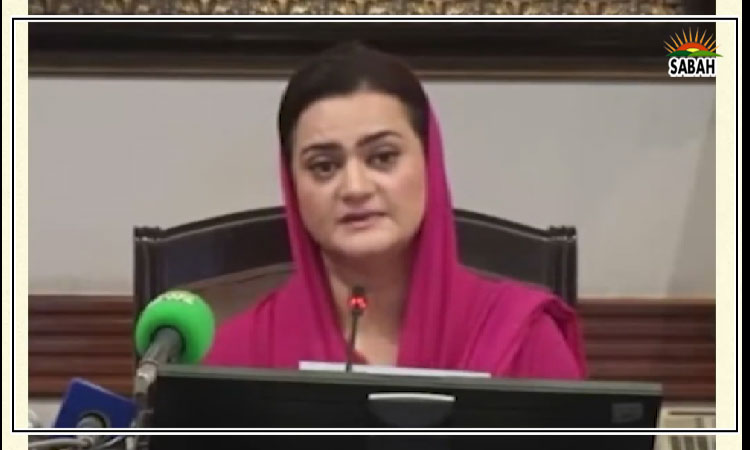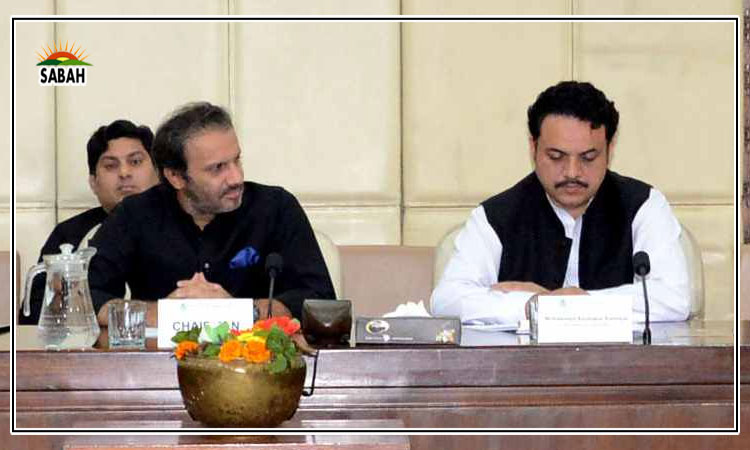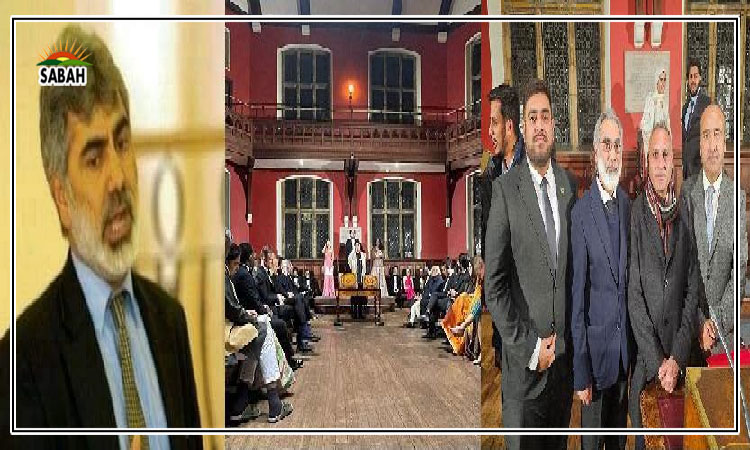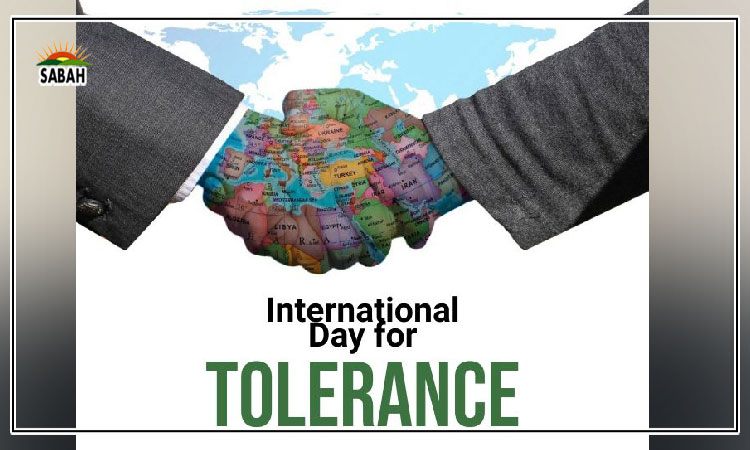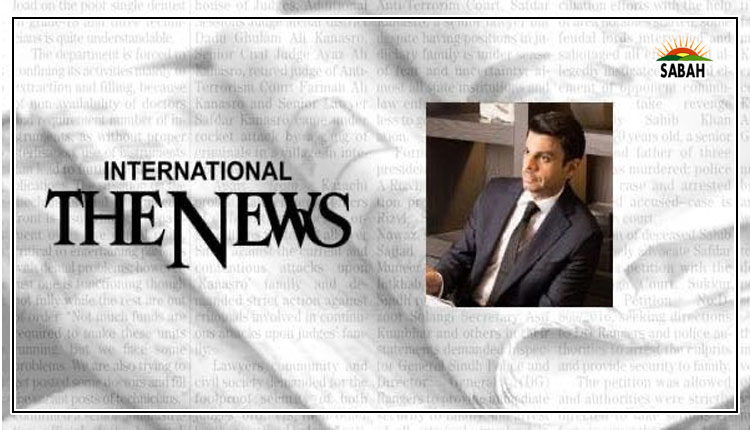Tears in a Supreme Court…Jawad Sohrab Malik
One single object will entitle you to the endless gratitude of society; that of restraining judges from usurping legislation. Thomas Jefferson
if the polity of the government upon vital questions, affecting the whole people, is to be irrevocably fixed by the decision of the Supreme Court, the people will have ceased to be their own rulers Abraham Lincoln
If we fail to check the power of the judiciary, I predict that we will eventually live under judicial tyranny. Patrick Henry
Recently, the chief justice of Pakistan, with his voice thick with emotions, was reduced to tears in an open court. Under him, the Supreme Court is a house divided against itself. Both the SC and the CJP are under assault from within and without. The vilification and venom on social media is despicable and warrants unqualified condemnation.
This article attempts a personal analysis of the source and causes of our perennial judicial woes.
We have a chequered judicial history; our SC is known to have acted with flexible integrity in the past with complete impunity. Initially, the judiciary collaborated with the extra-constitutionalists. After the second restoration of Justice Iftikhar Muhammad Chaudhry as CJP in 2009, the SC amplified its jurisdiction and superiority over the constitution, law, parliament, politics and much else with dire consequences. The nation and the judiciary have still not recovered from that.
Our judicial history records extraordinary judgments such as Molvi Tamizuddin Khan, Dosso, Begum Nusrat Bhutto and Syed Zafar Ali Shah. They were delivered under, inter alios, Muhammad Muneer, Sheikh Anwarul Haq and Irshad Hassan Khan. Thus coups d tat were validated and applauded. Still more, the judiciary were apologists for the extra constitutional dictators and granted them powers to amend the constitution. The constitution was subverted, an elected prime minister was judicially murdered, two prime ministers were disqualified, democracy was undermined and the nation was disenfranchised.
The privatization of the Pakistan Steel Mills was refused thereby depriving it of a huge capital injection and modernization. This was an illegal and idiotic usurpation of the executive powers. In the Reko Diq case, the SC, under Justice Iftikhar Muhammad Chaudhry, erroneously assumed jurisdiction and misread the basic tenets of international law. It took a mere tribunal to overturn our Supreme Court, refuse impunity/defence to the state of Pakistan and pushed the nation to the brink of financial bankruptcy.
In a suo-motu case concerning the then deputy speaker of the National Assembly, Qasim Khan Suri, the SC passed directions pertaining to parliamentary proceedings. Such interference is utterly untenable.
In Reference No 1 of 2022, the SCs interpretation of Article 63-A of the constitution to the effect that a party dissidents parliamentary vote against party directions would not count is widely acclaimed to constitute a re-writing of the constitution. The Supreme Court (Practice and Procedure) Act, 2023 is currently under suspension.
Rightly or wrongly, the judicial fixation of an election date has not been universally accepted. Parliament reacted. It passed a resolution against the SC ruling which is not binding but the legislature and the SC are in a standoff against each other.
Such instances of judicial overreach (read: judicial tyranny) is now part of the public discourse. An institution that is unelected and unaccountable, self-appointed and self-perpetuating, loses its public legitimacy and moral authority when it substitutes its will as to what the law should be for its judgment as to what the law is.
The reference against Justice Qazi Faiz Isa was the catalyst for the SC schism. The schism deepened progressively after his exclusion from important cases, the failure to hold full court meeting(s), fixation and non-fixation of cases, constitution of SC benches, exercise of suo-motu power(s), appointment of SC judges in violation of the seniority principle, and lately, the withholding of permission to withdraw the curative petition against him.
The judicial crises, public discourse and the SC schism has embraced the person of the CJP. He has become controversial. His discretionary powers under the SC Rules and SC judgments are now deemed arbitrary and whimsical. The same are now openly challenged by a number of brother judges.
The CJP is of a humane disposition. If there are tears, it is infinitely better that there be tears of a leader and not a nation. On a personal note, with humility, may I remind the CJP of Lord Actons statement to Bishop Creighton There is no worse heresy than that the office sanctifies the holder of it.
Courtesy The News




